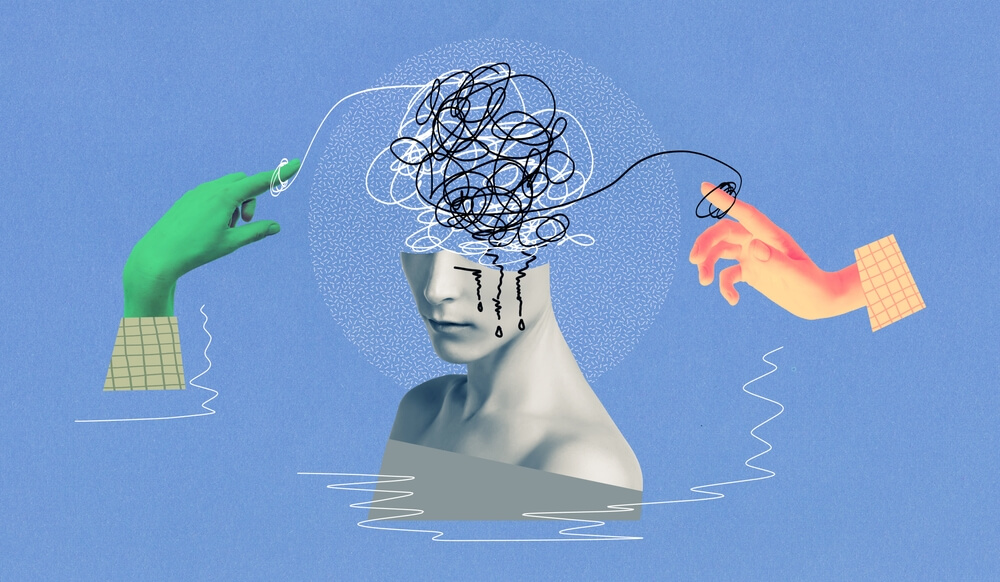In the United States, alcohol abuse is one of the leading causes of death. About 178,000 people die every year because of alcohol misuse or excessive use of alcohol. Having a drink occasionally is not alcohol abuse or AUD (Alcohol Use Disorder). Nor is social drinking necessarily problematic. Alcohol Abuse is a medical condition. It has identifiable patterns. It represents biological changes with serious health consequences.
What is Alcohol Abuse?

Alcohol Use Disorder, or alcohol abuse, is the excessive or harmful use of alcohol. This can lead to physical, mental, or social problems. Alcohol abuse interferes with your health, relationships, or daily responsibilities. The Fifth Edition (DSM-5) of the Diagnostic and Statistical Manual of Mental Disorders classifies AUD under Substance-Related and Addictive Disorders.
In the last version, the DSM-IV divided alcohol-related problems into two distinct disorders. One is alcohol abuse, and the other is called alcohol dependence. The DSM-5 combined them into one disorder named Alcohol Use Disorder. AUD is further sub-classified as mild, moderate, and severe Alcohol Use Disorder..
AUD is still colloquially referred to as:
- Alcoholism
- Alcohol dependence
- Alcohol addiction, Alcohol abuse (former DSM-IV term)
- Problem drinking,
- Alcohol misuse
Note that Alcohol Use Disorder is different from responsible drinking. Let's understand the differences:
| Responsible Drinking | Alcohol Use Disorder |
| Drinking within recommended limits. Limit: up to 1 drink/day for women, 2 for men. | Regularly exceeding safe limits or binge drinking. |
| Alcohol does not affect responsibilities. | Neglecting work, family, or personal obligations due to drinking. |
| Can easily go without drinking. | Experiencing cravings or feeling unable to stop alcohol drinking. |
| No negative consequences from drinking/ | Legal problems, relationship conflicts, or health issues because to alcohol. |
| Drinking is social and occasional. | Drinking alone, in secret, or to cope with emotions. |
| No tolerance buildup. | Needing increasingly more alcohol to feel the effects. |
| No withdrawal symptoms. | Experiencing sweating, tremors, anxiety, or nausea when not drinking. |
The Major Patterns of Alcohol Abuse

Understanding different patterns helps identify when drinking has become a medical concern:
1. Binge Drinking
Binge drinking is the most common type of alcohol abuse among adults in the United States. And yes, it is the most dangerous pattern of excessive alcohol use. Binge drinking is when a men drink five or more drinks in a two-hour duration. Four or more drinks in two hours is alcohol abuse for a woman. (bringing blood alcohol concentration to 0.08% or more)
Key Characteristics
- Responsible for increasing the risk of injuries.
- People show violence and risky sexual behavior.
- Those who are not alcohol dependent can also fall into binge drinking of alcohol.
Health Risks of Binge Drinking
- Alcohol toxicity and poisoning.
- Falls, burns, or car crash injuries.
- Violence, including homicide and sexual assault reported.
- Memory problems and difficulty recalling events.
- Highly prone to developing AUD.
2. Heavy Drinking
Heavy drinking alcohol abuse for men is having 15 or more drinks per week. For women, it is 8 or more drinks in a week.
Key Characteristics
- Chronic pattern that develops over time.
- Often begins gradually and escalates.
- Significantly increases the risk of developing AUD.
- Associated with numerous chronic health conditions.
- It may not always result in obvious intoxication.
It is important to know what is referred to as one standard drink quantity of Alcohol.
3. Alcohol Dependence
Alcohol dependence represents severe Alcohol Abuse or AUD, i.e., Alcohol Use Disorder. It is characterized when someone is physically and psychologically relying on alcohol.
Key Characteristics
- Physical withdrawal symptoms when not drinking.
- Strong compulsion to drink.
- No control over the amount and frequency of alcohol consumption.
- Continued use, without considering the known serious consequences.
- Days and nights are all around obtaining and using alcohol.
4. High-Functioning Alcoholism
Some individuals maintain outward success while struggling with AUD. They may hold jobs, maintain relationships, and appear responsible while meeting criteria for the disorder. They are characterized as functioning alcoholics or High-Functioning Alcoholism.
Distinguishing Features
They do not have obvious symptoms of alcohol abuse. High-functioning AUD often manifests through:
- Defensive behavior about drinking.
- Drinking alone or in secret.
- Memory blackouts, requiring alcohol to relax.
- Denial of the alcohol abuse problem despite meeting diagnostic criteria.
What Counts as One Standard Drink of Alcohol?
According to the National Institute on Alcohol Abuse and Alcoholism, it is a standard measurement that is referred to as one standard drink of alcohol, respectively on the alcohol type and percentage in it. One drink of alcohol is:
- 12 ounces of regular beer, as it contains about 5% alcohol.
- 8 to 9 ounces of malt liquor contains about 7% alcohol.)
- 5 ounces of wine, having about 12% alcohol.
- 1.5 ounces of distilled spirits or hard liquor with about 40% alcohol.
When to Get Professional Help? The Warning Signs of Alcohol Abuse
Early intervention comes with many benefits. It includes better treatment outcomes.
Do you want to prevent serious health complications due to alcohol abuse and preserve your relationships and career?
Observe these signs and seek professional help:
→ Unable to limit the amount of alcohol you drink?
→ Your cutting-down efforts are turning into unsuccessful attempts?
→ Spending significant time drinking, getting alcohol, or recovering from hangovers?
→ Feeling strong alcohol cravings or urges to drink?
→ Failing to fulfill responsibilities at work or home due to drinking?
→ Continuing to drink despite relationship, social, or work problems caused by alcohol?
→ Giving up activities you once enjoyed to drink instead?
→ Drinking in dangerous situations like driving or operating machinery?
→ Needing more alcohol to feel effects?
→ Experiencing withdrawal symptoms when not drinking?
→ Drinking to cope with stress, anxiety, or depression?
→ Others expressing concern about your drinking?
Remember: Denial of Alcohol abuse is common. You may not recognize how much you drink. Or you are ignoring how many problems in your life are related to alcohol use. So, listen when loved ones express concern and get a better life with professional help!

Impact and Consequences of Alcohol Abuse
It is really dangerous! Alcohol misuse can affect nearly every aspect of your life.
| Impact Area | Consequences |
| Physical Health |
|
| Mental Health |
|
| Relationships |
|
| Safety |
|
| Occupational / Financial |
|
| Quality of Life |
|
| Pregnancy Risks |
|
Why Expert Psychiatric Care is Crucial for Treating Alcohol Abuse?

AUD often coexists with other mental health conditions. Alcoholics can develop depression, anxiety, PTSD, and bipolar disorder. It requires expert-led, specialized treatment and medication management approaches.
- Alcohol withdrawal can be medically dangerous. It requires expert supervision!
- Individuals respond differently to medications. Professional medication management for treating alcohol abuse is necessary.
- If there are any co-occurring conditions with alcoholism, they require expert treatment.
- Ongoing monitoring is crucial to avoid a relapse of your symptoms.
Expert Alcohol Abuse Treatment at Health & Psychiatry
Health & Psychiatry is a recognized mental health care provider and alcohol abuse treatment provider in Tampa, Florida. We understand that Alcohol Use Disorder is not a moral failing or lack of willpower. It is a medical condition! And it requires professional treatment.
Led by Dr. Sajan Dinar, MD, our practice provides comprehensive psychiatric evaluation and evidence-based treatment for individuals struggling with AUD or alcohol abuse.
Take the first step toward recovery and reclaim your life from Alcohol Use Disorder!




